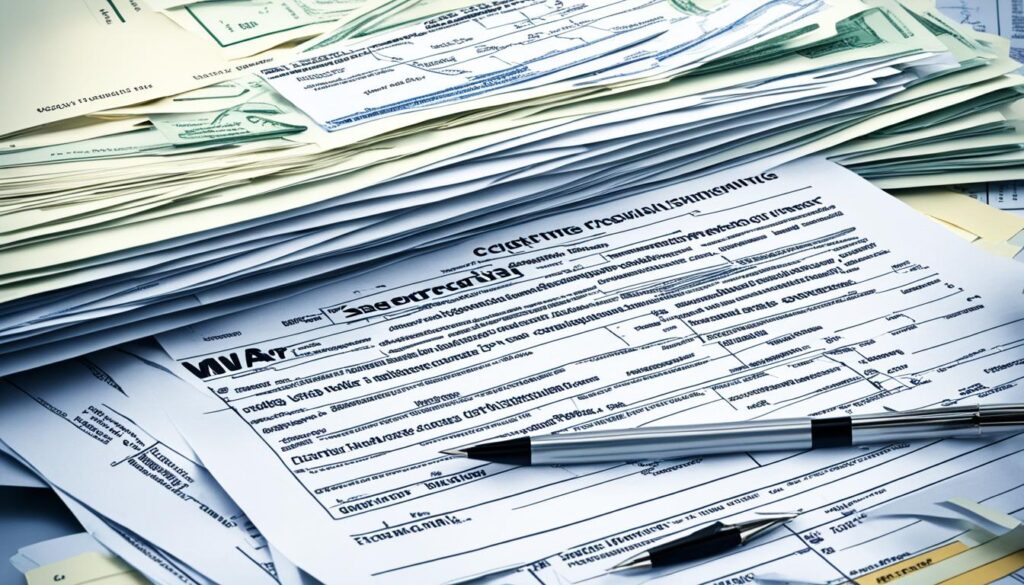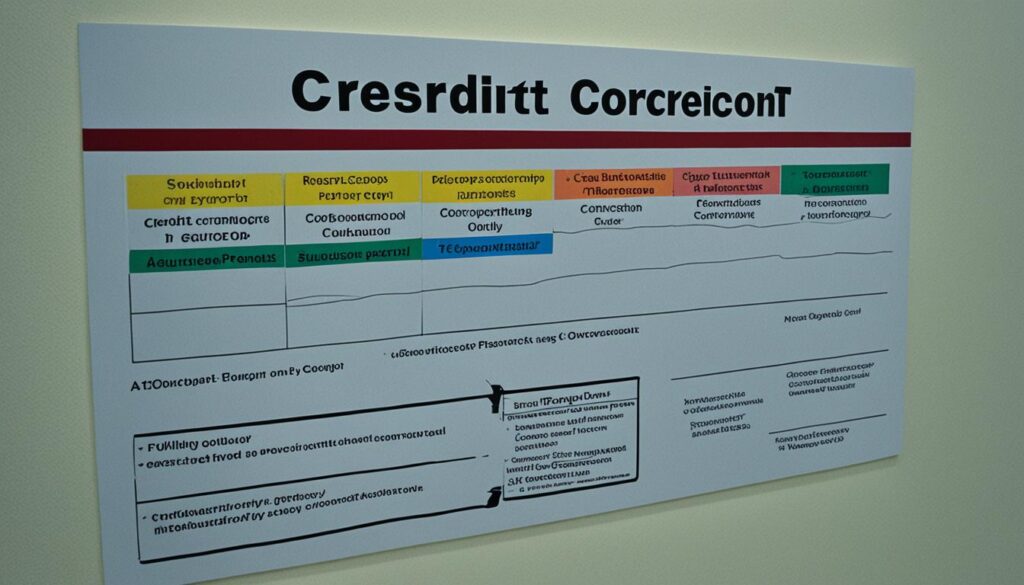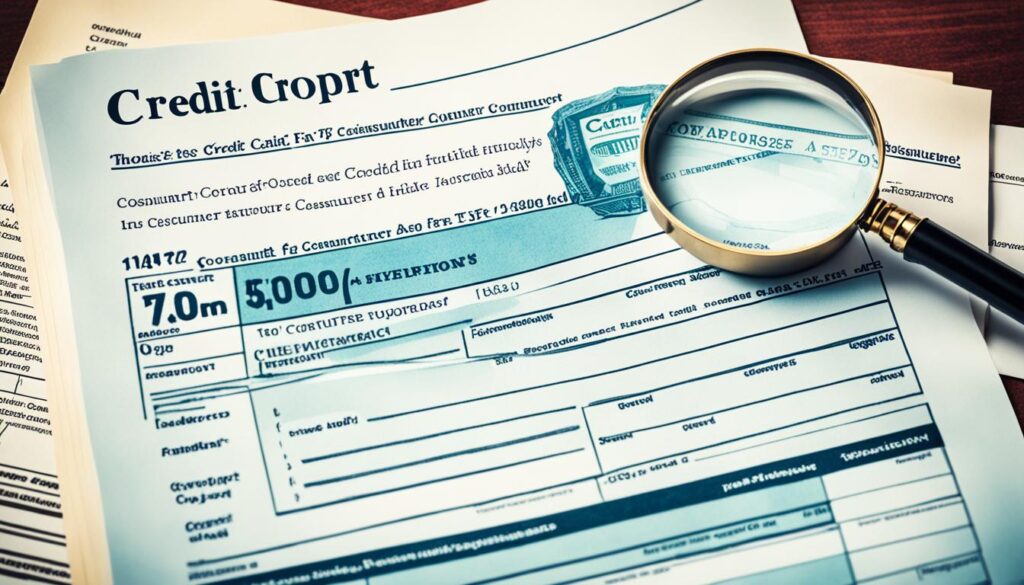Winning a credit dispute can transform your financial health. It’s a crucial tool for ensuring accurate credit reports. A successful challenge can open doors to better financial opportunities.
Knowing your rights in credit disputes is essential. It lets you control your financial story. A successful dispute can lead to credit report correction, potentially boosting your score.
Let’s explore what happens after winning a credit dispute. We’ll look at how it can reshape your credit landscape. From immediate changes to long-term benefits, we’ll cover it all.
Key Takeaways
- Winning a credit dispute can lead to significant improvements in your credit report
- Successful disputes may result in the removal of negative items from your credit history
- Understanding the dispute process is essential for protecting your consumer rights
- A positive outcome can open up new financial opportunities and better loan terms
- Regular credit monitoring is crucial to catch and dispute errors promptly
Understanding Credit Disputes: An Overview
Credit disputes help maintain an accurate credit history. They let you challenge wrong info on credit reports. This ensures fair representation of your finances.
What is a credit dispute?
A credit dispute asks to fix wrong info on your credit report. You tell credit bureaus about errors. This starts an investigation into the disputed items.
Common reasons for filing a dispute
People often file disputes for various reasons, including:
- Incorrect personal information
- Accounts not belonging to them
- Outdated negative items
- Incorrect payment statuses
- Fraudulent activities or identity theft
The importance of accurate credit reports
Accurate credit reports are key to financial health. They affect your ability to get loans and rent apartments. They can even impact job opportunities.
Regular credit report fixes help protect your financial reputation. This ensures your financial standing stays strong.
| Benefits of Accurate Credit Reports | Consequences of Inaccurate Reports |
|---|---|
| Better loan terms | Higher interest rates |
| Improved credit scores | Difficulty obtaining credit |
| Easier approval processes | Potential job offer rejections |
| Financial peace of mind | Stress and financial strain |
Disputing errors helps you control your financial future. Check your reports often. Fix mistakes quickly to avoid money troubles later.
The Credit Dispute Process: From Filing to Resolution
Correcting errors on credit reports is vital for consumers. The process involves key steps and engages both consumers and credit bureaus. Let’s explore how to navigate this important journey.

First, scan your credit report for errors. Look for incorrect account info, outdated personal details, or signs of fraud. Gather documents to support your claim. This evidence is crucial for a successful dispute.
Next, file your dispute with the credit bureau. You can do this online, by mail, or phone. Include all necessary info and documents. Credit bureaus must investigate within 30 days of receiving your dispute.
During the investigation, bureaus contact the info provider to verify the dispute. If the provider can’t confirm accuracy, the bureau must remove or correct the data.
You’ll get the results in writing after the investigation. If changes were made, you’ll receive a free updated credit report. Review this report to ensure all corrections are accurate.
The Fair Credit Reporting Act protects your rights throughout this process. It ensures credit bureaus handle disputes fairly and promptly. If you need help, consider reaching out to credit specialists for guidance.
“A successful credit dispute can significantly impact your financial health, making it crucial to understand and engage in the process when necessary.”
What Happens When You Win a Credit Dispute?
Winning a credit dispute can significantly change your financial life. It can improve your credit health and open new opportunities. Let’s explore the outcomes of a successful dispute.
Immediate effects on your credit report
A successful dispute leads to changes in your credit report. The disputed item will be removed or corrected. This includes the removal of late payments or incorrect account statuses.
Sometimes, entire accounts that don’t belong to you may be removed. These changes result in credit report correction.
Long-term impacts on your credit score
Winning a dispute often improves your credit score. The improvement depends on the error’s nature and its impact. Removing a late payment could boost your score by several points.
Correcting a major error like a wrongly reported bankruptcy could significantly increase your score. These improvements can open doors to better financial opportunities.
Legal implications of a successful dispute
A successful dispute can have legal implications beyond credit report correction. It may lead to debt removal if the disputed debt was invalid. You might receive compensation if the error caused you financial harm.
- Potential for compensation from creditors or credit bureaus
- Improved chances of loan approval
- Better interest rates on future credit applications
Winning a credit dispute is just the beginning. Good credit habits are crucial for long-term financial health. Regularly monitor your report to maintain and improve your credit score.
Credit Report Correction: Steps After Winning a Dispute
Winning a credit dispute is just the start. The next phase involves ensuring your victory improves your credit history. Credit report correction is crucial for achieving this goal.

Request updated credit reports from all three major bureaus. This helps verify that disputed items have been removed or fixed. Review each report carefully, focusing on previously inaccurate sections.
If you spot discrepancies or missing corrections, contact the credit bureaus again. Keep detailed records of all communications and changes. Persistence is key in credit repair.
After confirming the changes, it’s time to rebuild your credit. Here are some effective strategies:
- Pay all bills on time
- Keep credit card balances low
- Avoid opening new credit accounts unnecessarily
- Regularly monitor your credit reports for any new errors
Maintaining an accurate credit history requires ongoing effort. Stay alert and proactive in managing your credit. This approach ensures long-term financial health.
Improving Your Credit Score Post-Dispute
After winning a credit dispute, focus on boosting your credit score. This involves rebuilding creditworthiness and keeping an accurate credit history. Effective credit repair strategies can help achieve these goals.
Strategies for Rebuilding Credit
Consider these tactics to boost your credit score:
- Pay bills on time
- Keep credit utilization low
- Diversify your credit mix
- Avoid opening too many new accounts
Using these credit repair strategies can greatly improve your credit score over time.
Monitoring Your Credit Report
Regular credit report checks are vital for an accurate credit history. Set up alerts to catch potential errors early. Address any issues promptly to maintain a healthy credit profile.
Maintaining a Positive Credit History
Building a positive credit history takes consistent effort. Understanding key factors that influence your credit score is crucial.
| Factor | Impact on Credit Score | Action Steps |
|---|---|---|
| Payment History | 35% | Pay all bills on time |
| Credit Utilization | 30% | Keep balances below 30% of limit |
| Length of Credit History | 15% | Maintain older accounts |
| Credit Mix | 10% | Have a variety of credit types |
| New Credit | 10% | Limit new credit applications |
Focus on these areas to steadily improve your credit score. By doing so, you’ll build a strong financial foundation for your future.
Debt Removal: Understanding the Outcomes
Winning a credit dispute can lead to big changes in your finances. Removing wrong debts from your credit report is about more than just improving credit score. It’s about getting your financial freedom back.
Successful debt removal often boosts your credit score right away. This can open doors to better money options, like lower loan interest rates. It’s important to know that debt removal doesn’t erase your whole money history.
Instead, it fixes mistakes that may have been holding you back. Credit report fixes after winning a dispute involve several steps.
- Verification of the dispute outcome
- Removal of the disputed item from your credit report
- Updating your credit score
- Notifying relevant creditors and lenders
Keep in mind, debt removal isn’t a quick fix for all credit issues. It’s part of a bigger plan for good money health. Check your credit report often.
Fix any problems quickly to avoid future disputes. This helps keep your credit in good shape.
| Outcome | Impact |
|---|---|
| Debt Removal | Potential increase in credit score |
| Credit Report Correction | More accurate financial representation |
| Improved Credit Score | Better loan and credit card terms |
Understanding these outcomes helps you make smart money choices. You can keep working towards better credit health. This knowledge empowers you to take control of your financial future.
Credit Bureaus’ Responsibilities After a Successful Dispute
Credit bureaus have specific duties after you win a credit dispute. They must ensure your credit report correction is handled properly. These responsibilities protect consumer rights and maintain accurate credit histories.
Updating Credit Reports
Credit bureaus must promptly update your credit report after a successful dispute. They remove inaccurate information and adjust your credit score accordingly. This process usually takes 30 days but can be faster.
Notifying Creditors and Lenders
Credit bureaus inform creditors and lenders about changes to your credit report. This ensures all parties have your most current financial information.
Providing Updated Credit Reports
After making corrections, credit bureaus must give you an updated credit report copy. This lets you verify that all changes are correct. You can ensure your credit history is now accurate.
| Credit Bureau Responsibility | Timeframe | Consumer Action |
|---|---|---|
| Update credit report | Within 30 days | Review changes |
| Notify creditors/lenders | Within 30 days | Confirm with creditors |
| Provide updated report | Within 5 business days | Verify accuracy |
Knowing these credit bureau duties helps you manage your financial health. It ensures your credit report stays accurate. Check your credit report often to catch any future errors quickly.
Consumer Rights in Credit Disputes: What You Should Know
The Fair Credit Reporting Act (FCRA) protects consumers in credit reporting. It ensures fairness and accuracy in your credit report. Knowing your rights is key to handling credit disputes.

- Access your credit report for free once a year from each major credit bureau
- Dispute inaccurate information on your credit report
- Have errors corrected within 30 days
- Be informed if information in your report has been used against you
Credit disputes can be tricky, but knowing your rights is powerful. It helps you manage your financial future better. Learn more about disputing errors to protect your financial health.
“Your credit report is a reflection of your financial life. Protecting its accuracy is not just a right, but a responsibility.”
To use your rights and fix your credit, check out this table:
| Consumer Right | Action Step | Potential Outcome |
|---|---|---|
| Free annual credit report | Request reports from all three bureaus | Identify potential errors or fraud |
| Dispute inaccuracies | File a detailed dispute with credit bureaus | Removal of incorrect information |
| 30-day investigation period | Follow up if no response within timeframe | Prompt resolution of disputes |
| Add a statement to your report | Provide context for negative items | Better understanding for potential creditors |
Knowing your rights and using credit repair strategies can boost your credit profile. Stay informed to protect your financial health. Take action to improve your credit standing.
Credit Repair Strategies: Beyond Dispute Resolution
Winning a credit dispute is just the beginning. Smart credit repair strategies can boost your financial health. Pay bills on time and keep credit card balances low to improve your score.
Check your credit reports regularly for accuracy. You can get free reports yearly from each major bureau. Spot any errors and dispute them quickly to prevent future issues.
A secured credit card can help rebuild your credit. It requires a deposit but shows responsible credit use. Credit repair takes time, so stay patient and consistent.
With the right approach, your credit score will improve. This can open doors to better financial opportunities. Keep working on your credit habits for long-term success.

